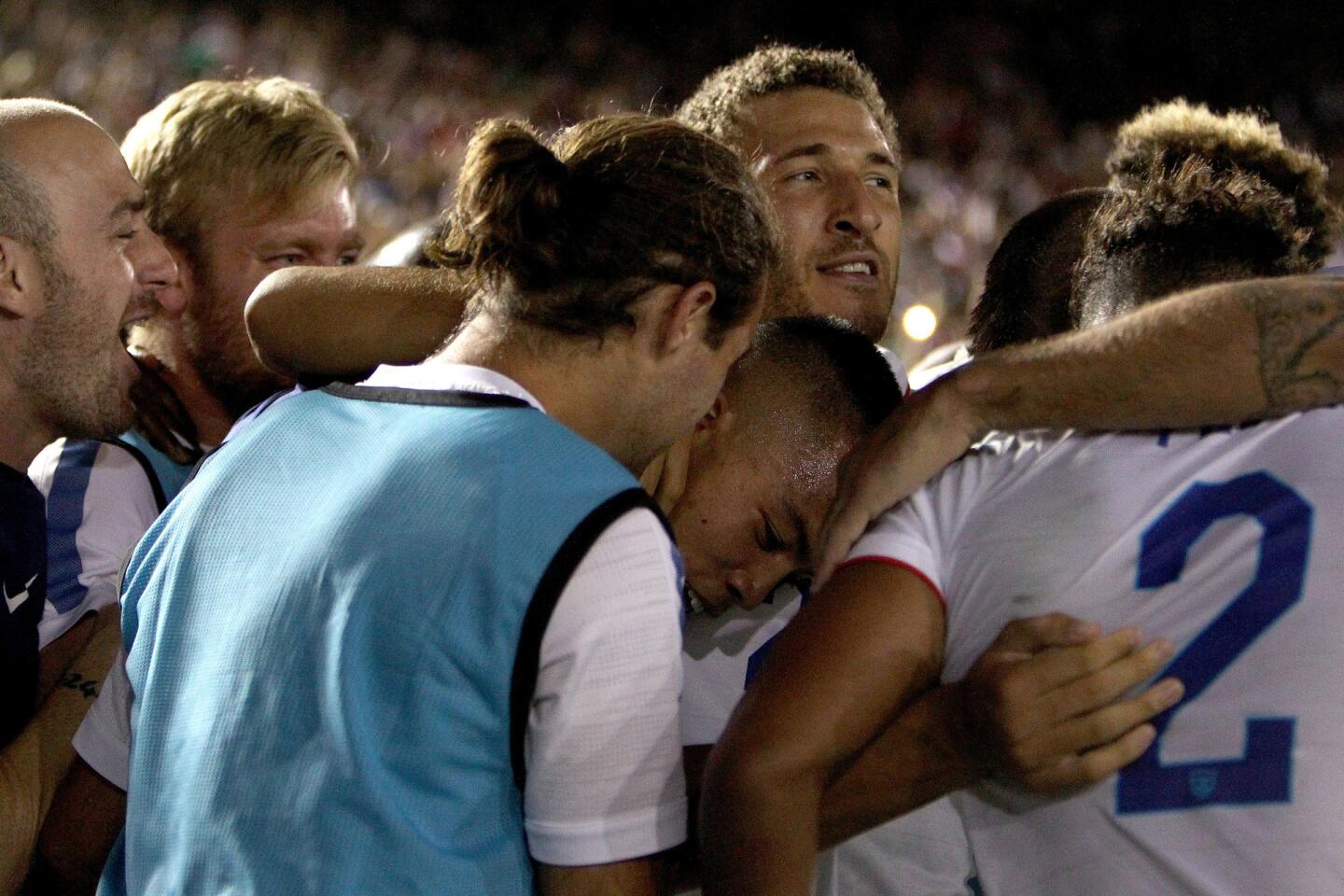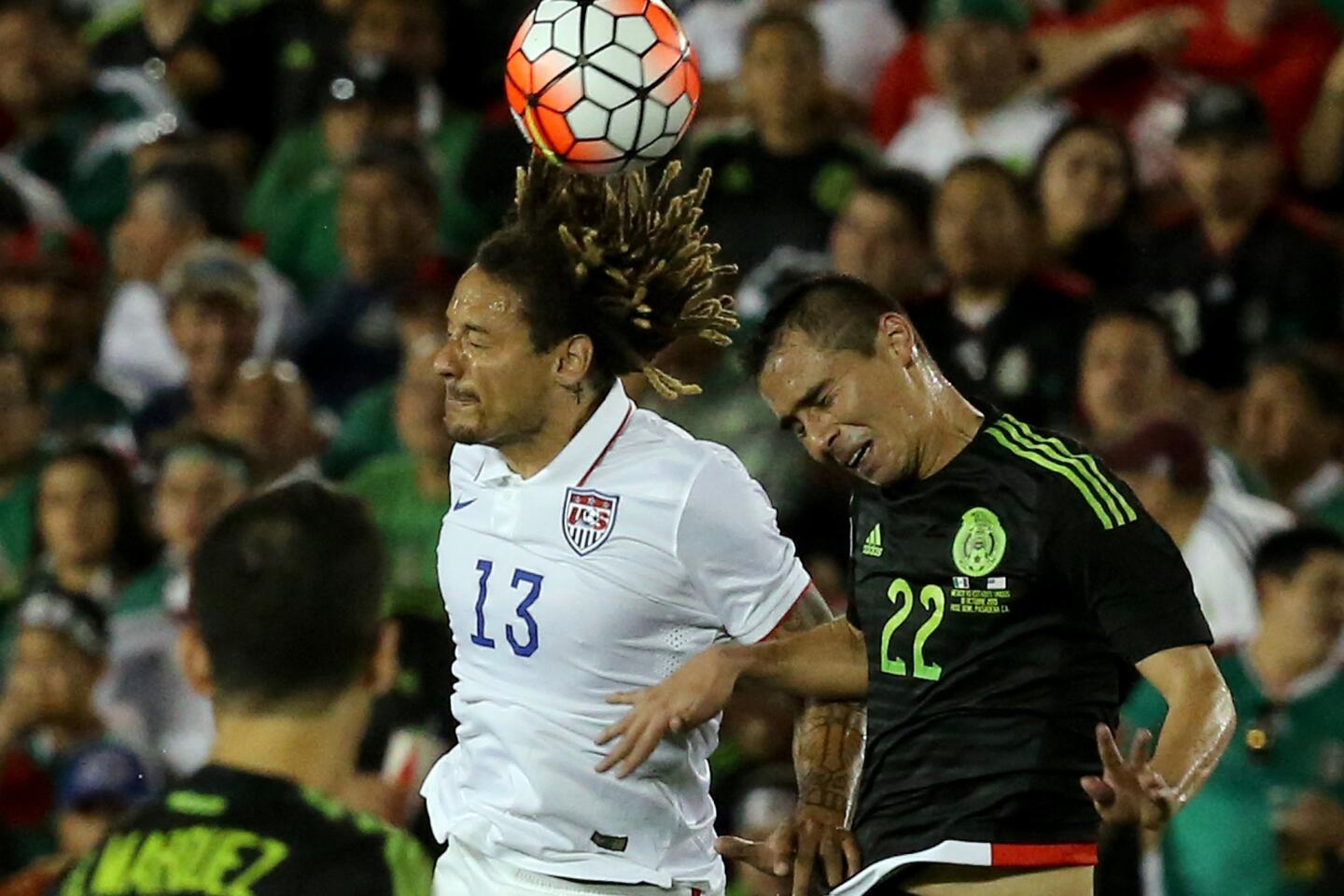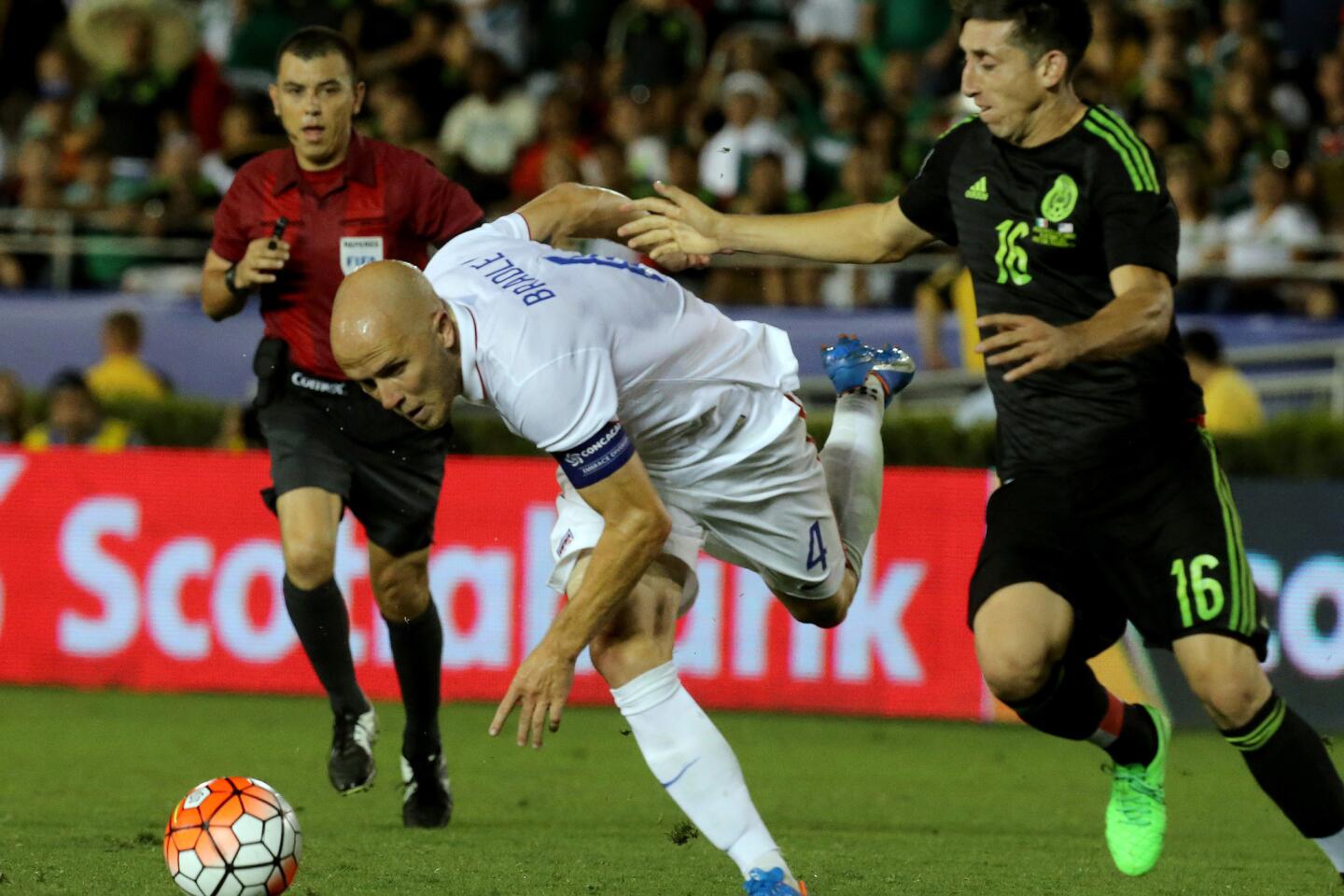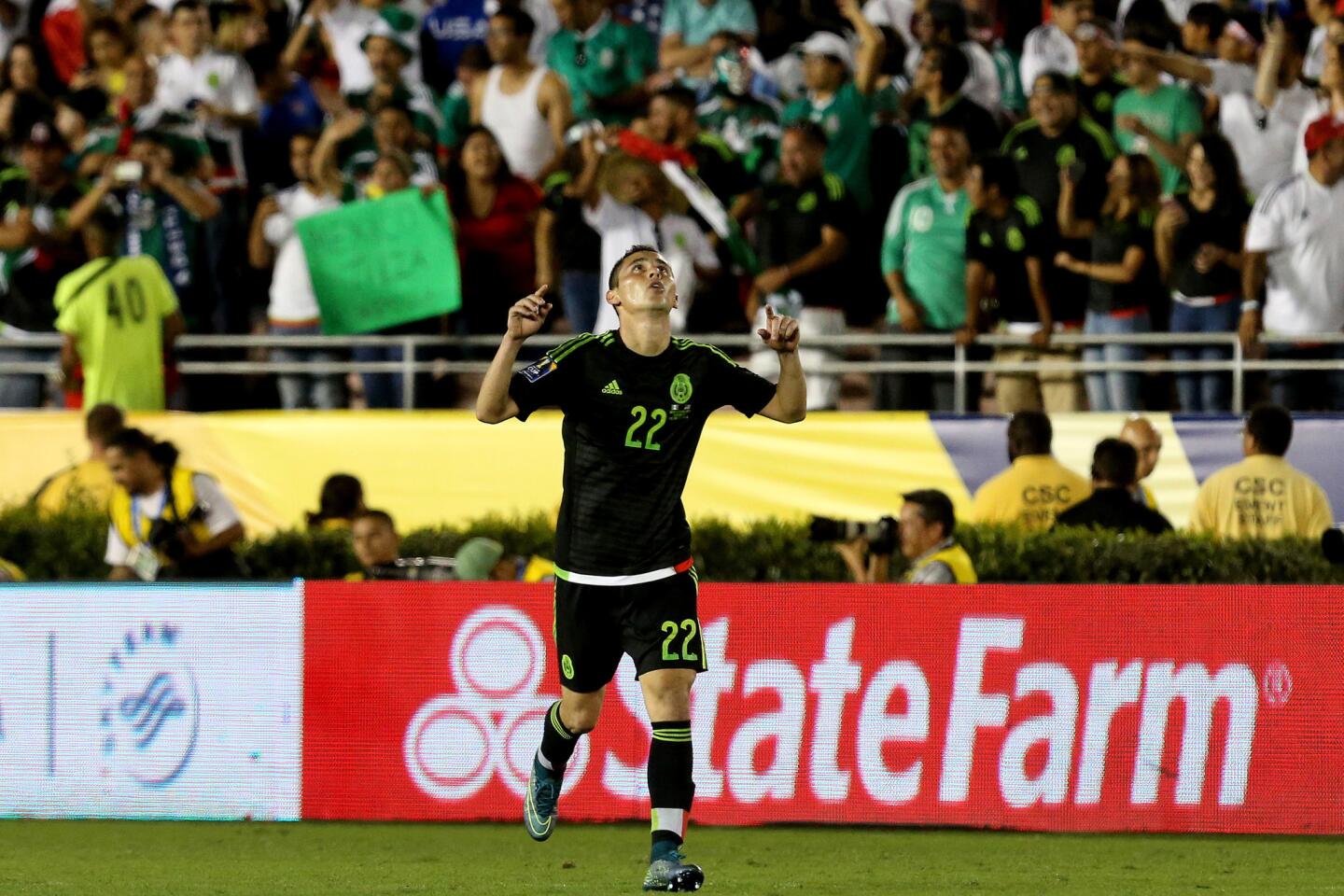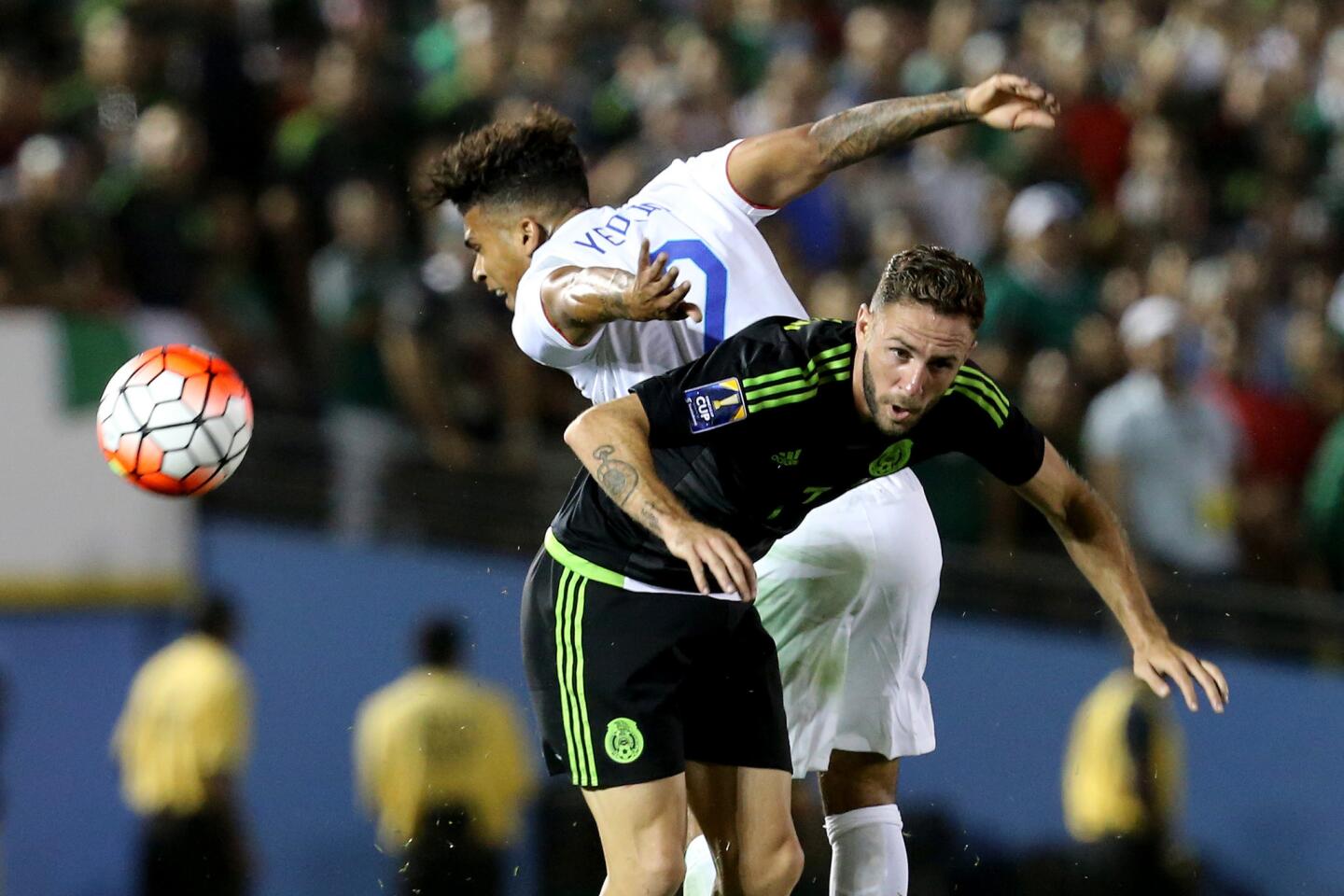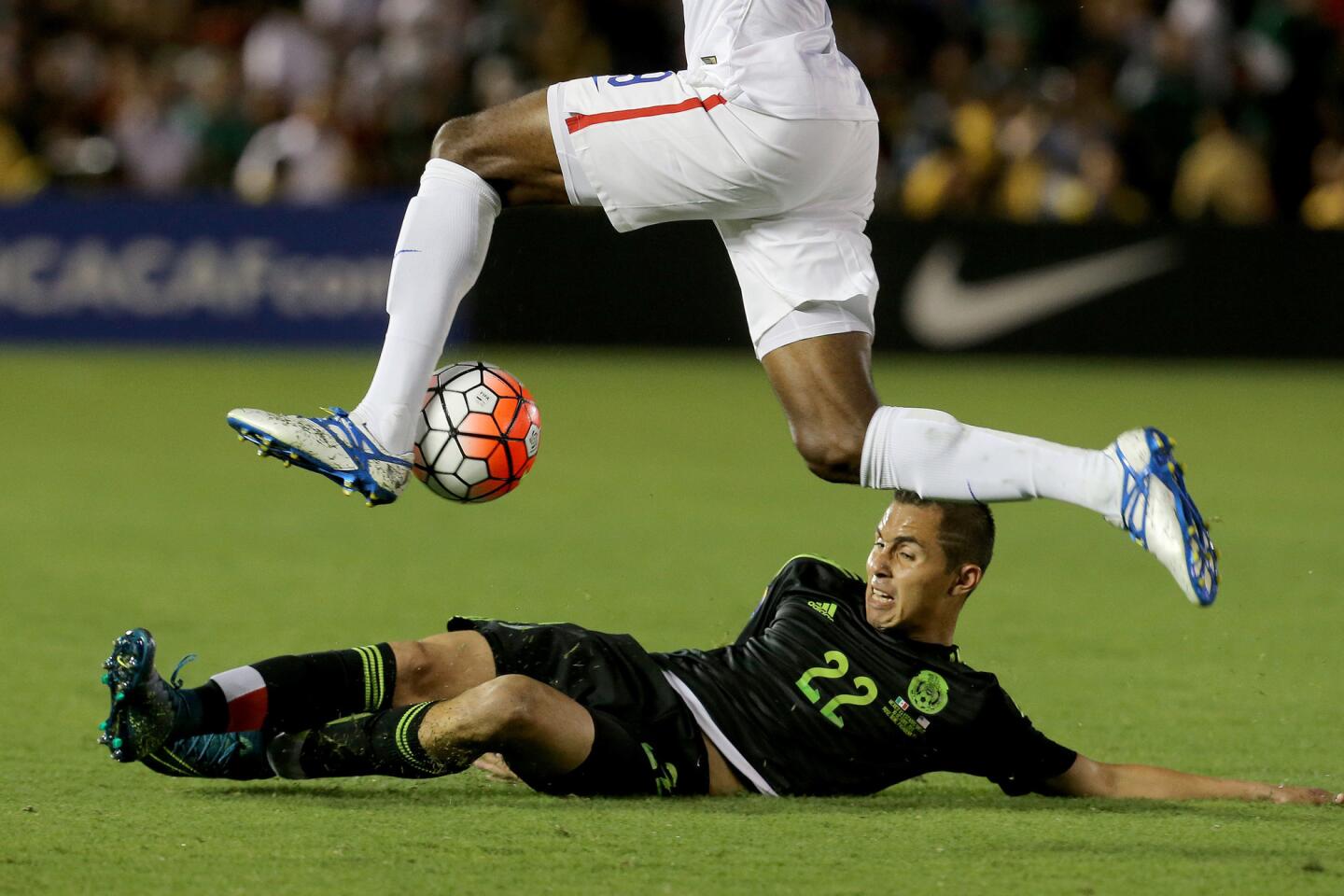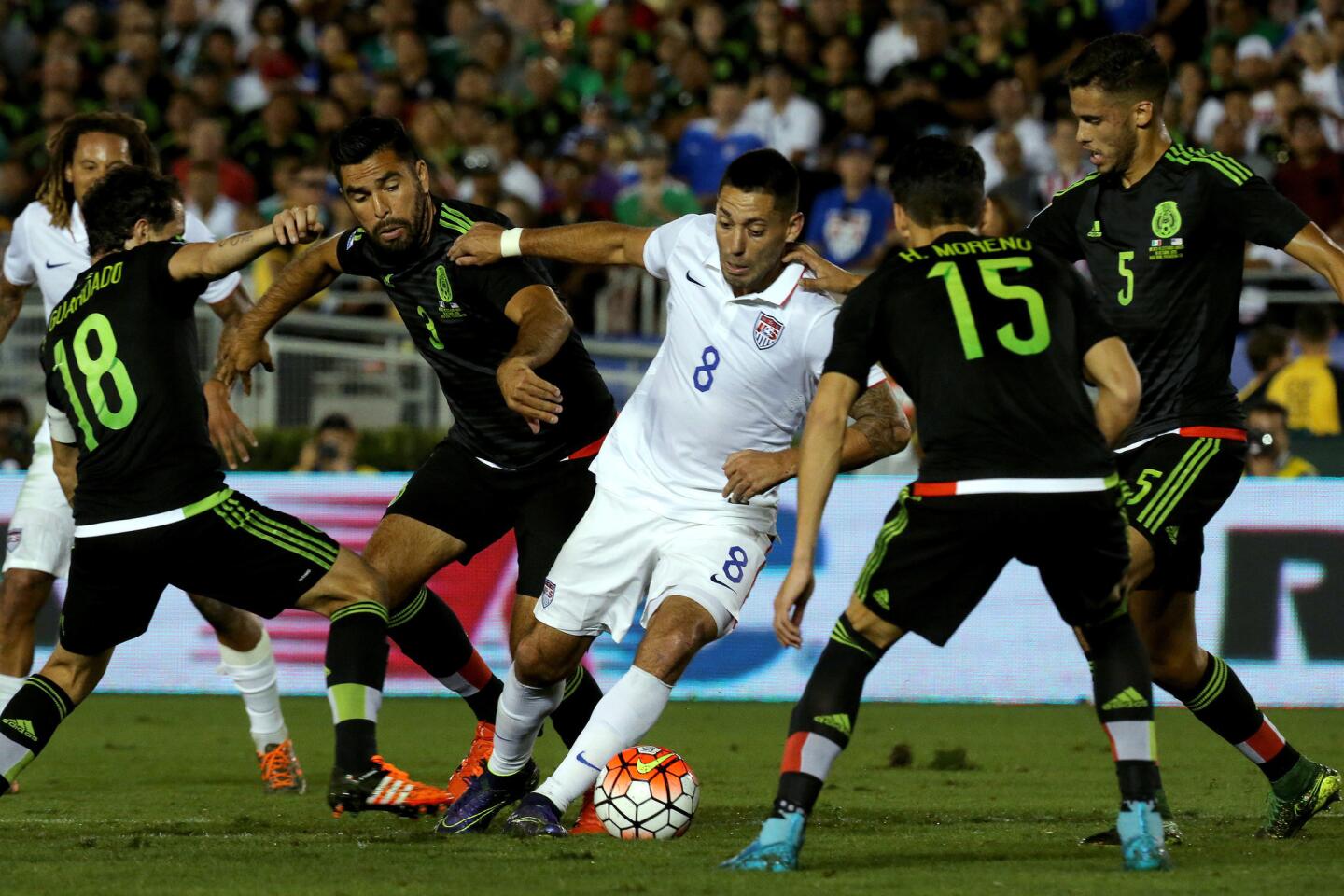Three takeaways from U.S. Soccer’s CONCACAF Cup loss to Mexico
- Share via
Here are three things we learned about the U.S. national soccer team in Saturday’s 3-2 overtime loss to Mexico at the Rose Bowl:
1. The U.S. program is in disarray: On the same day Coach Juergen Klinsmann’s senior national team was outplayed by Mexico, the U.S. U-23 team missed out on an opportunity to qualify for the 2016 Olympics by losing to Honduras in the semifinals of the CONCACAF qualifying tournament in Sandy, Utah.
As technical director for U.S. Soccer, Klinsmann is ultimately responsible for both losses. “Obviously, it was a bummer to see the Olympic team not win today, as well,” he said.
But Saturday was more than just one dark day for U.S. Soccer. Klinsmann’s senior team has won only one of its last five games and is coming off its worst Gold Cup performance in 15 years. And the U-23 team has missed two of the last three Olympic tournaments. So quick fixes won’t be enough to turn around what has arguably become a death spiral.
“We have to get our group together and rethink the next couple of months,” Klinsmann said. “We have to kind of sit together and discuss things -- who we’ll be counting on, how we want to build toward the next couple of games. There’s not much time in between, because World Cup qualifying is World Cup qualifying. So there will be a lot of conversations coming up in the next couple of days.”
2. Klinsmann isn’t going anywhere ... : Despite a growing chorus calling for his ouster, Klinsmann’s job is safe. For now.
Whether he keeps it for the length of his contract -- which runs through the 2018 World Cup and reportedly pays him a U.S.-record $2.6 million a year -- could be decided over the next 11 months of World Cup qualifying, however.
When Klinsmann was hired in the wake of the last U.S. loss to Mexico, in 2011, he promised to create an aggressive, attacking style. Instead, his teams have too often looked passive and uninspired. He pledged to create a distinct American identity. But he’s experimented with so many lineups and formations, his teams have yet to develop a personality.
Criticism is nothing new to Klinsmann, who was heavily attacked while remaking the German program a decade ago. He stayed the course and Germany won a World Cup. He says he has a plan for the U.S. too, and so far U.S. Soccer President Sunil Gulati appears content to give that plan more time. A difficult start to World Cup qualifying, however, could test that resolve.
3. … but others may be leaving: Nine of Saturday’s 11 U.S. starters will be older than 30 when the next World Cup kicks off, so Klinsmann will have to begin remaking his roster now.
Fortunately, he has a promising crop of young forwards to choose from, including Stanford junior Jordan Morris and Hawaiian-born Bobby Wood, who scored the second U.S. goal Saturday.
Where the U.S. really needs help, though, is on the back line. And there the cupboard appears bare -- which is why Klinsmann lured 33-year DaMarcus Beasley out of retirement only to see him wilt against Mexico’s quick attacking style.
It will be a difficult balancing act for Klinsmann: refreshing his team with new players while also creating a distinct style and putting in dominant performances in World Cup qualifying, which begins next month.
More to Read
Go beyond the scoreboard
Get the latest on L.A.'s teams in the daily Sports Report newsletter.
You may occasionally receive promotional content from the Los Angeles Times.


